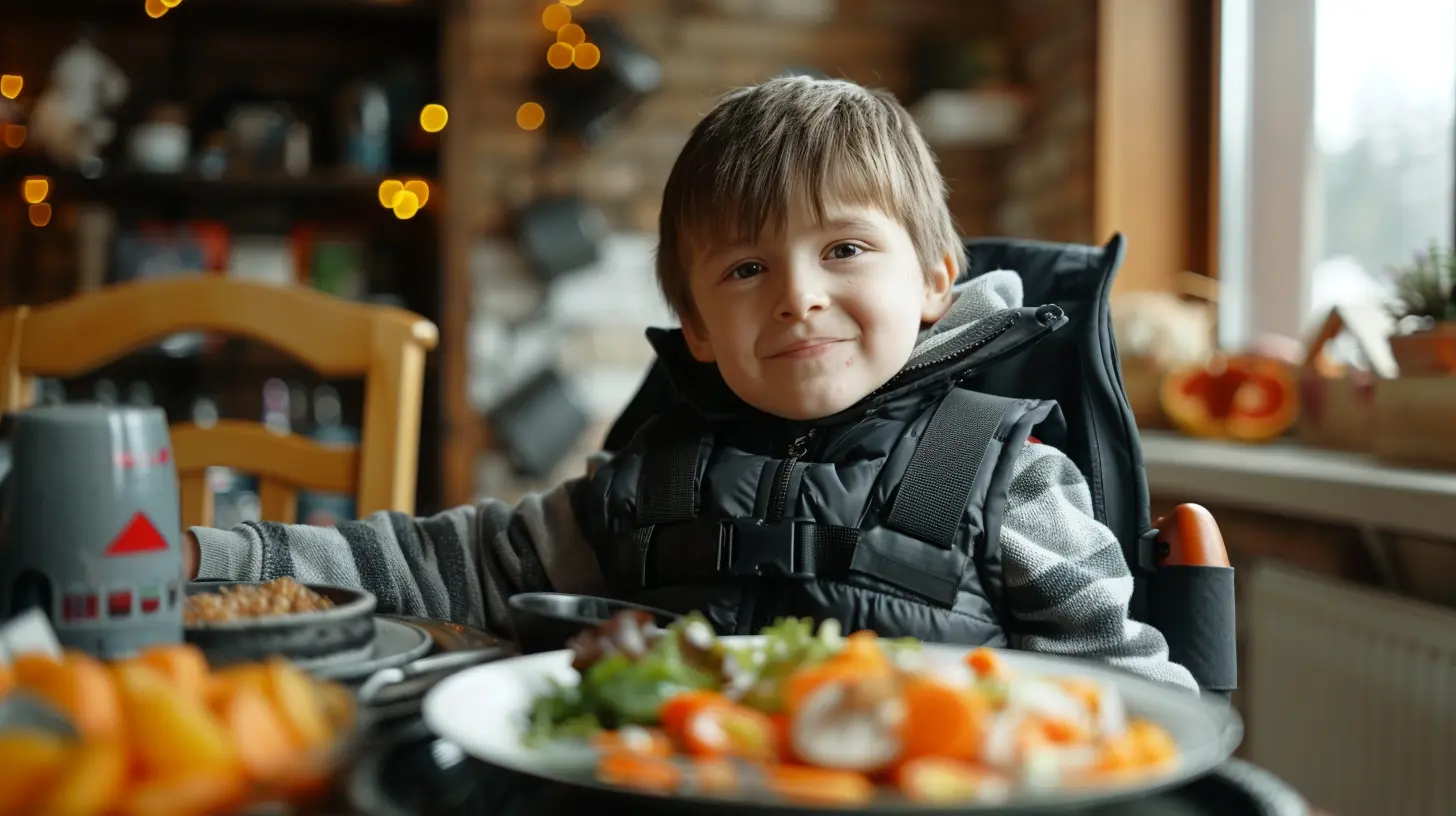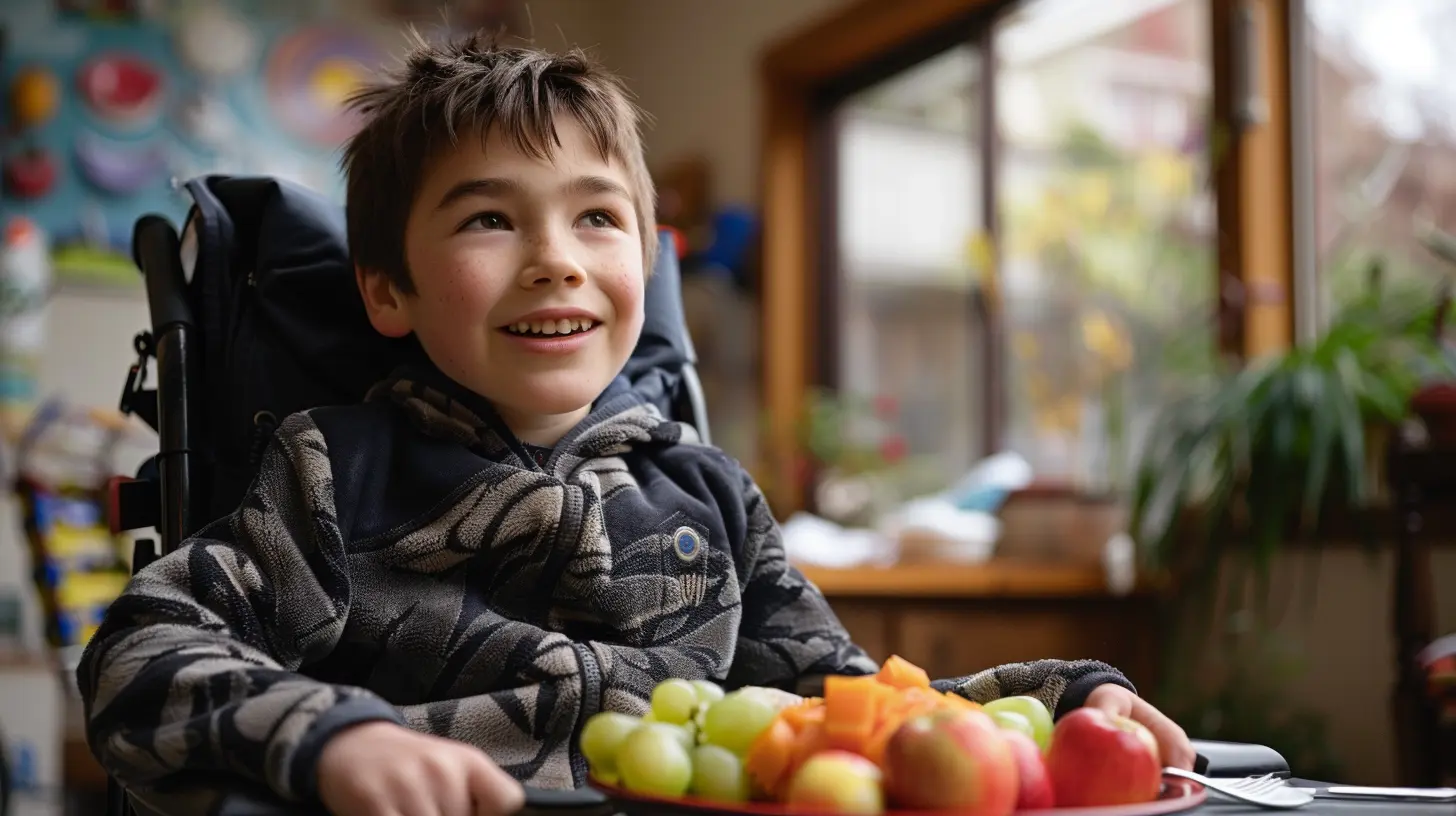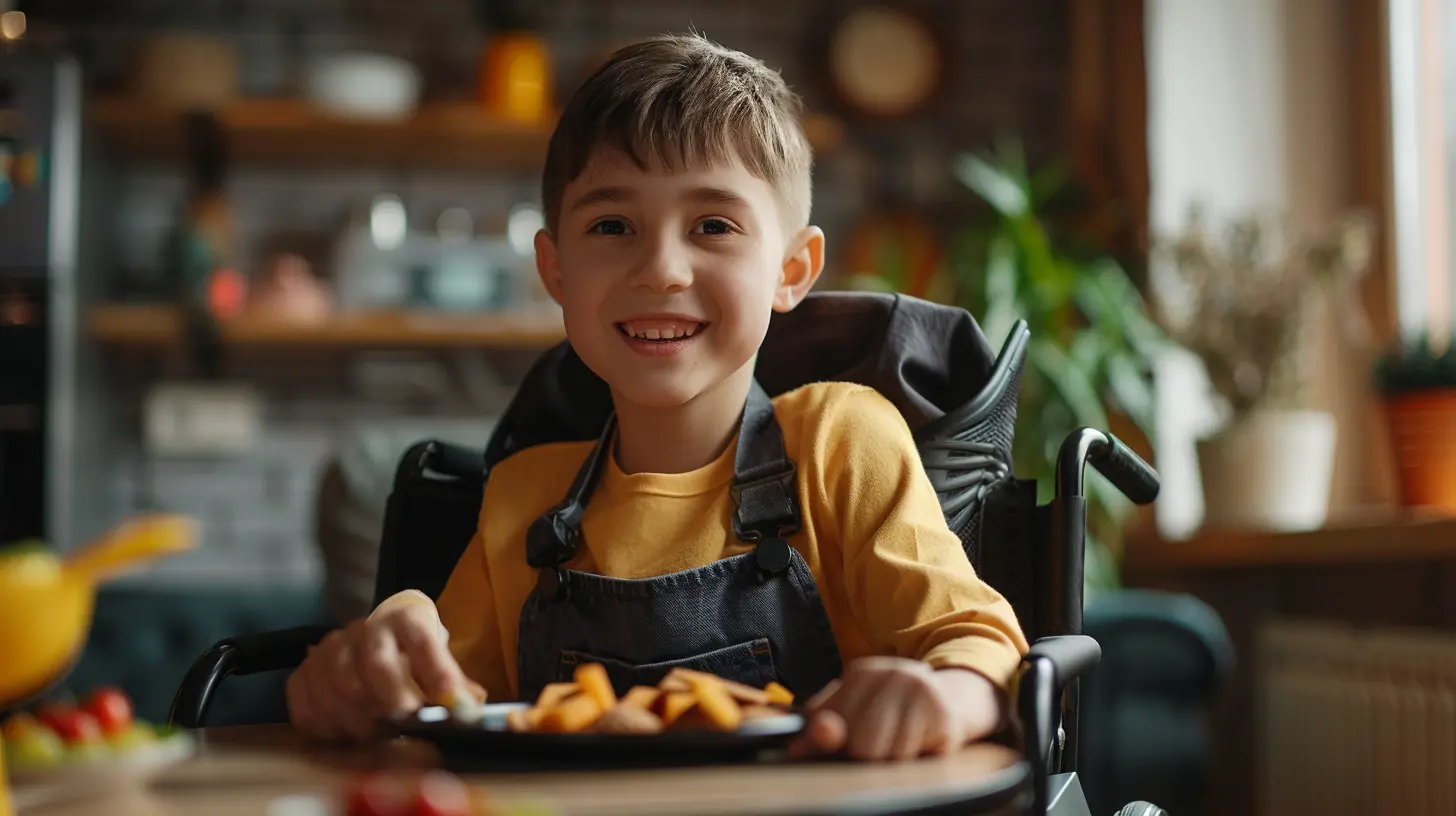18 January 2025
Mealtime can be a beautiful bonding experience, but for parents of kids with special needs, it often comes with unique challenges. Whether it's dealing with sensory sensitivities, motor skill difficulties, or just navigating the emotions of wanting to help your child thrive, fostering independence at the dinner table might seem like a tall order. But here's the good news: with a bit of patience, creativity, and the right strategies, you can help your child become more self-reliant during meals. And guess what? It doesn't have to be overwhelming—you've got this!
Let’s pull up a chair and dive into ways to make mealtime a positive, empowering experience for your child.
Why Independence at Mealtime Matters
First things first—why is promoting independence at mealtime so important? Beyond simply teaching your child "how to eat," you're giving them essential life skills. Think about it: eating on their own helps kids build self-confidence, improves their motor skills, and even nurtures a sense of accomplishment. And for kids with special needs, these small victories can feel like climbing mountains.Letting your child take control (even in small ways) at the table also reduces some of the pressure, both on you and them. No one likes feeling micromanaged—even kids! When they’re given the tools and freedom to succeed on their own terms, everything about mealtime starts to feel a whole lot more positive, fun, and peaceful.
Start Small: Setting Realistic Expectations
Before we jump into the “how,” let’s talk about setting the stage. Independence doesn’t happen overnight—it’s a process, and that’s perfectly okay. The key is to meet your child where they are, celebrate progress (no matter how small), and resist the urge to compare them to anyone else. Every child’s journey is unique, and yours is no exception.If your little one struggles with holding utensils, focus on just having them hold the spoon. If chewing is tricky, maybe start by encouraging them to explore different food textures with their hands. Baby steps matter! Rome wasn’t built in a day, and mealtime independence isn’t either.
Make Mealtime a Stress-Free Zone
Let’s be honest—mealtime can get messy. Literally and figuratively. And for kids with special needs, the added layers of sensory overload, frustration, or anxiety can make things even trickier.So, here’s the golden rule: keep it calm. Your energy sets the tone. Kids are like little sponges—they pick up on your stress and mirror it back. Instead of focusing on everything that could go wrong, try to create a relaxed, no-pressure environment. A few ways to do this:
- Use soft, calming background music to drown out unwanted noises.
- Dim the lights slightly if your child is sensitive to bright lighting.
- Keep the table setup simple—fewer distractions, fewer meltdowns.
Think of it as creating a cozy little oasis where your child feels safe exploring and experimenting. If they feel comfortable, they’ll be much more likely to try new things.
Choosing the Right Tools for Success
If you’ve ever tried to eat soup with a fork, you know the importance of having the right tools. The same goes for kids learning to eat independently, especially if they have motor planning or sensory challenges.Consider adaptive utensils and dishes designed to make mealtime easier. For example:
- Weighted utensils: Great for kiddos with shaky hands or low muscle tone.
- Divided plates: These can help kids who feel overwhelmed by food touching (a.k.a. the “no peas in my mashed potatoes” rule).
- Non-slip placemats: Reduce spills and give your child more stability.
- Ez-grip cups: Perfect for tiny hands still mastering the art of holding.
These specialized tools can make your child feel more in control, which is a big confidence boost.
Encourage Choice and Autonomy
Ever notice how kids become instantly more enthusiastic when they feel like they’re in charge? Giving your child choices during mealtime is an easy way to foster independence. For instance, you can ask:- “Which plate do you want to use—blue or green?”
- “Do you want apples or bananas as your snack?”
- “Would you rather use a spoon or fork?”
Even small decisions like these help kids feel empowered and respected. It’s like giving them a mini sense of ownership over their mealtime experience. And let’s be honest, we all like feeling we’ve got a say in things, right?
Break It Down: One Step at a Time
For kids with special needs, complex tasks like eating can sometimes feel overwhelming. But when you break it down into manageable steps, the task becomes way less daunting. Think of it like teaching someone to ride a bike—you don’t just throw them on a two-wheeler and expect them to cruise. You start with training wheels, go slow, and build up their confidence.Here’s how this could look during meals:
1. Step 1: Encourage them to pick up the utensil.
2. Step 2: Show them how to scoop or stab the food.
3. Step 3: Guide them to bring the utensil to their mouth.
4. Step 4: Cheer like they just won a gold medal when they succeed.
Breaking it down reinforces the idea that “I can do this,” which is exactly what you want your child to feel.
Celebrate Messes (Yes, Really!)
Messes are part of the journey—embrace them! I know, cleaning spaghetti off the walls isn’t exactly anyone’s idea of fun, but messes are often a sign that your child is trying, experimenting, and learning.Think of it this way: when a toddler learns to walk, they fall a lot. We don’t scold them for stumbling; we encourage them to get back up. The same logic applies here. Let them explore, touch, squish, and (yes) spill. Over time, those messes will turn into mastery.
Pro tip: Keep a stack of wet wipes or a damp washcloth nearby for quick clean-ups. Trust me, it’s a lifesaver!
Incorporate Play and Fun
Who says mealtime has to be boring? Adding an element of play can be a game-changer for kids who feel resistant or hesitant about eating on their own. For example:- Turn their utensils into “magic wands” or “airplanes” delivering food.
- Use cookie cutters to create fun shapes with sandwiches or fruits.
- Create a silly game, like seeing who can keep a spoon balanced longer.
When mealtime feels like playtime, kids are much more likely to engage. And let’s be real, who doesn’t love a little fun with their food?
Lead by Example
Kids are natural imitators, so showing them how to eat (without making a big deal of it) can be incredibly helpful. Sit down together as a family whenever possible, and eat the same foods alongside your child. They’ll see you using utensils, trying new foods, and enjoying the experience—and they’ll be more inclined to join in.It’s not about perfection; it’s about connection. Remember, mealtime isn’t just about nourishment—it’s about togetherness.
Celebrate Progress, Not Perfection
Finally, remember that every step forward is worth celebrating. Maybe today they picked up their spoon. Maybe tomorrow, they’ll use it to take a bite. Maybe next week, they’ll finish a whole meal independently. Whatever the milestone, cheer them on. Your encouragement is the fuel that keeps them trying.Perfection isn’t the goal. Progress is. And as long as you’re moving in the right direction, you’re doing an amazing job—both of you.
Final Thoughts
Encouraging independence at mealtime for kids with special needs takes time, patience, and a whole lot of love. But step by step, little by little, your child will grow more confident in their abilities. Remember, you’re not alone in this journey. Celebrate the small victories, lean on support when you need it, and always, always trust your instincts. You’re the expert on your child and what they need.So, grab that spoon, sit down at the table, and take it one bite at a time. You’re doing great, and so is your little one.









Uri Martin
This article offers invaluable insights on fostering independence at mealtime for kids with special needs. Practical tips and real-life examples make it easy to implement. Highly recommend!
March 22, 2025 at 4:30 PM